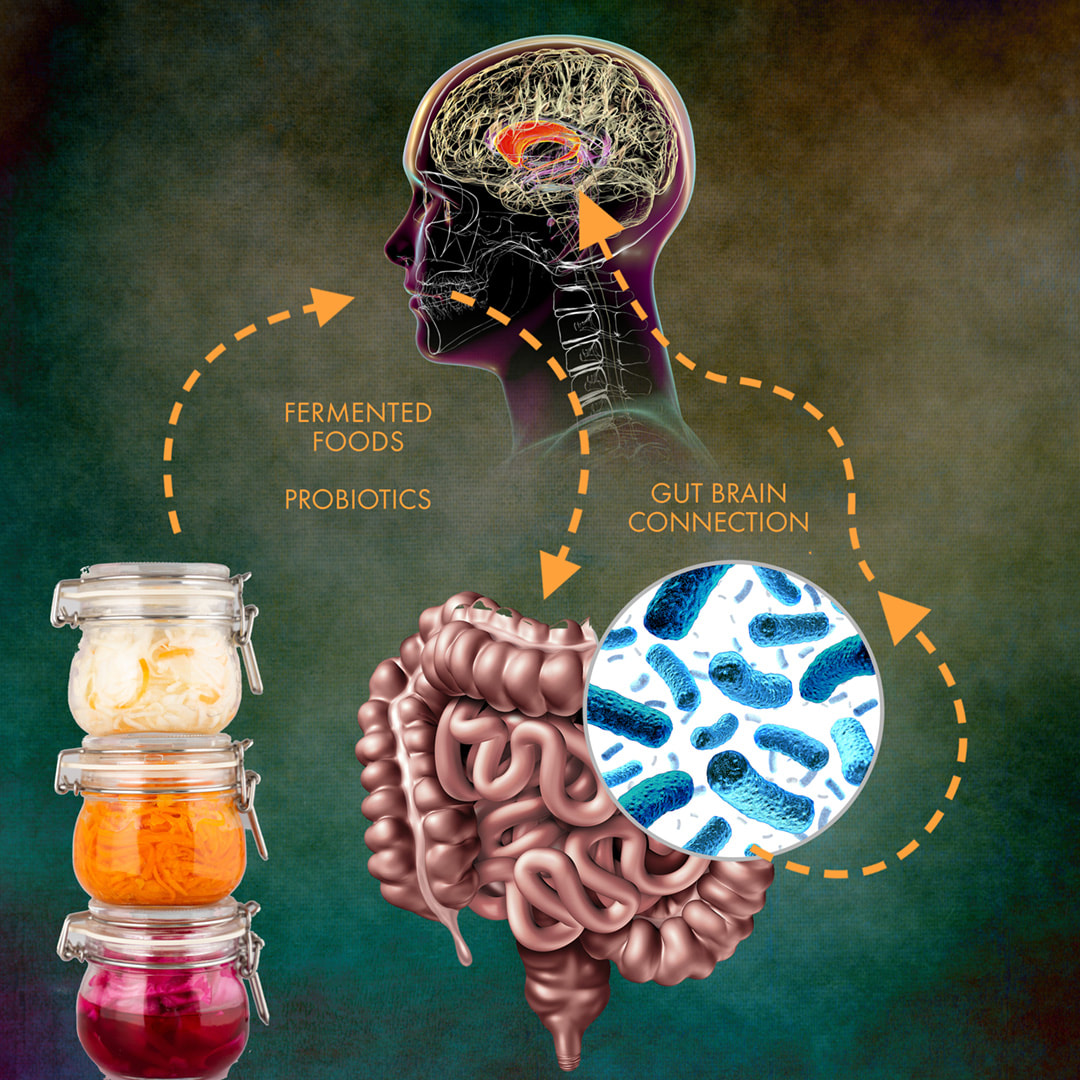These findings do seem to substantiate existing research regarding the gut-brain axis, the neural pathway that links our gut gastrointestinal (GI) system and the central nervous system (CNS) and its potential role in neurodegenerative diseases. We’ve written extensively as well about the need to maintain a healthy diet to support our gut microbiome, which comprises the trillions of microbes known collectively as the gut microbiota, and is significantly affected by the foods we eat. Unfortunately, the standard American diet marked by processed foods, refined carbohydrates, and excessive sugars and sodium is simply not conducive to maintaining our general or brain health.
Over the last few years in particular there has been a great deal of focus too on probiotics, which are a combination of live beneficial bacteria and/or yeasts that naturally live in your body. Unfortunately there are many instances where these “good bacteria” are diminished, either through the use of medications like antibiotics as well as negative lifestyle habits including too much alcohol, smoking, less sleep and other factors. Thus, the move toward including a high quality probiotic in our diets has gained in popularity, although we certainly can’t expect a supplement to negate the impacts of a poor diet and other risk factors. The study. As noted in the 2021 publication, “Neurogenic and anti-inflammatory effects of probiotics in Parkinson’s disease: a systematic review of preclinical and clinical evidence,” scientists examined the effects of probiotics on several areas: energy metabolism; inflammation and oxidative stress; neurodegeneration; and motor and non-motor function. The review findings from pre-clinical studies showed that probiotics:
The review team stressed that while there do appear to be benefits of probiotics on certain mechanisms and phenotypes, further research is warranted to fully understand and confirm these outcomes, focusing on better understanding the results of lab research and how it can be used to develop new ways to treat patients. Support your gut health! Dysbiosis, or an imbalance of gut microbes, also has been associated with obesity, diabetes, liver disease and other neurodegenerative diseases like multiple sclerosis (MS). So, what everyday steps can we take toward a healthier gut microbiome?
Getting quality sleep, regular exercise, stress modifications such as mindfulness or meditation practices and eliminating smoking or other negative factors can all go a long way toward improving the connection between your gut and your beautiful brain! In health and hope, Dr. Suzanne Gazda References and additional reading: 1 Valentina Leta, K. Ray Chaudhuri, Oliver Milner, Guy Chung-Faye, Vinod Metta, Carmine M. Pariante, Alessandra Borsini. Neurogenic and anti-inflammatory effects of probiotics in Parkinson’s disease: a systematic review of preclinical and clinical evidence. Brain, Behavior, and Immunity (2021). https://www.sciencedirect.com/science/article/pii/S0889159121002907?via%3Dihub Gazerani P. Probiotics for Parkinson's Disease. Int J Mol Sci. 2019;20(17):4121. Published 2019 Aug 23. doi:10.3390/ijms20174121. https://www.ncbi.nlm.nih.gov/pmc/articles/PMC6747430/ Conditions we treat: Parkinson’s disease https://www.suzannegazdamd.com/parkinsonrsquos-disease.html From our blog library: https://www.suzannegazdamd.com/blog/does-all-disease-begin-in-the-gut https://www.suzannegazdamd.com/blog/new-research-puts-spotlight-on-diagnosing-parkinsons-disease https://www.suzannegazdamd.com/blog/a-ketogenic-diet-can-it-be-beneficial-for-our-brains-and-our-bodies
0 Comments
Your comment will be posted after it is approved.
Leave a Reply. |
AuthorDr. Suzanne Gazda, Integrative Neurology Archives
February 2024
Categories |

 RSS Feed
RSS Feed